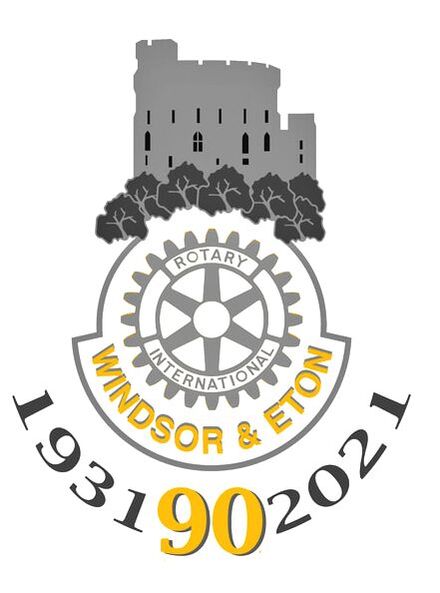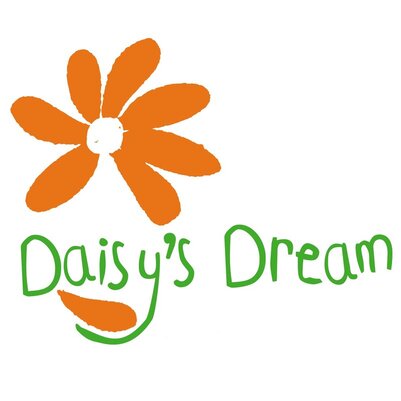 What a jam-packed and fun club meeting we had yesterday, not only did we hear from Zoe Ovens about the amazing work that Berkshire-based charity Daisy's Dream does but we also had visitors from Maidenhead Bridge Rotary and Howdens Rotary Club; as well as investing our new Vice President Adrian Benge! About Daisy's Dream Established in 1996, Daisy’s Dream is a professional support service which responds to the needs of children and families affected by life threatening illness or bereavement. They work predominantly in Berkshire and the surrounding areas, with a pilot project running in East Cheshire. Originally set up to meet the needs of children who had been bereaved, over recent years they have expanded our service to encompass families where there has been a serious illness diagnosis. Zoe explained that they offer a flexible service which is tailored to meet the individual needs of each child and their family. This may include:
The death or serious illness of someone close can have a devastating effect on a child or young person. With the right support and information however, children and young people can be helped to understand what has happened and learn to move forward in a positive way. Research shows that, without the opportunity to express and explore their grief, bereaved children and young people may be at risk of future health, social and educational difficulties and disadvantages. This is in addition to the impact of the bereavement on their emotional health and well-being. Zoe explained that every 22 minutes a child looses a parent in the UK and that services are so stretched children affected aren’t getting the support they need, hence why Daisy’s Dream is filling that gap. The charity supported a total of 702 children last year, with 90% of those cases being referred to the charity via schools. It costs £400,000 to run the charity each year and this money is all raised through groups, corporate sponsorship and grant applications, they do not receive any government funding. Therefore they are looking for help in the following ways
Finally Zoe explained why the charity is called Daisy’s Dream… everyone believes this is the name of the Founders daughter, when in fact the daughter was asked what to call the charity and she decided to name it after the family pet.. Daisy the Labrador! Now when you see their mascot out and about you’ll know why its Daisy the Dog! Find out more about the charity here: www.daisysdream.org.uk
0 Comments
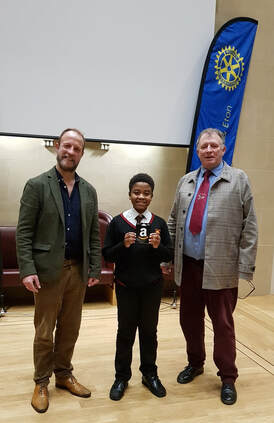 I love organising the Rotary Youth Speaks Competition every year because it allows our young people to shine. This year Trevelyan Middle School & St Edward’s Royal Free Ecumenical Middle School fought for the Intermediate prize and Windsor Girls fought for the Senior prize amongst themselves in the prestigious Jafar Hall at Eton College. What a story to tell at dinner parties in years to come. Teachers are very busy people with lots of demands on their time so they need to have a real passion for Youth Speaks to give it the time and commitment required. Thankfully, this year the new English teacher at Windsor Boys came and watched the competition and said she would bring boys teams next year… hurrah, they are engaging again… would love to see Dedworth Middle School join in if anyone reading this has any influence? The topics for this year’s debate were:
All the students gave an amazing account of themselves, sharing their thoughts on their chosen topics with passion and belief normally only seen on TV when a CEO is fighting their corner. Richard Allen of the Green Room led our Intermediate judges and gave each team a clear summary of their performance, enthusing all to keep debating. The Intermediate winners spoke on “Money can’t buy happiness” with George Burden as Chair, Fiona Winters Proposing the topic and Anushka Sagar Opposing. Edward Shekiluwa, chair of the other team, won the Best Speaker prize with his very engaging performance using his god given smile to light up the room. David Knowles-Leak chaired the senior judges and underlined the importance of taking part being character building and that all local schools should join in. The younger team from Windsor Girls won again this year on the topic of “Mobile phones have a positive impact on today’s society”. Chaired by Olatz Bulson-Roman, Proposed by Scarlett O’Shaughnessy and Opposed by Lydia Sampson we all turned our phones to silent mode so we hear the debate ;) Scarlett won Best Speaker and so walked away with oodles of Amazon vouchers so she can buy more books, videos and mobile apps! Because of circumstance, 2 teams from each category are going forward to the next round to be held in February where they will be competing against teams from Ascot, with the winners going through to the District Finals in March in Marlow. As Chair of the Youth Committee I am exploring an idea of how I can take the energy from this competition and bottling it for the wider community to help young people find their voice. Thank you. Jon Davey Chair of Youth Committee 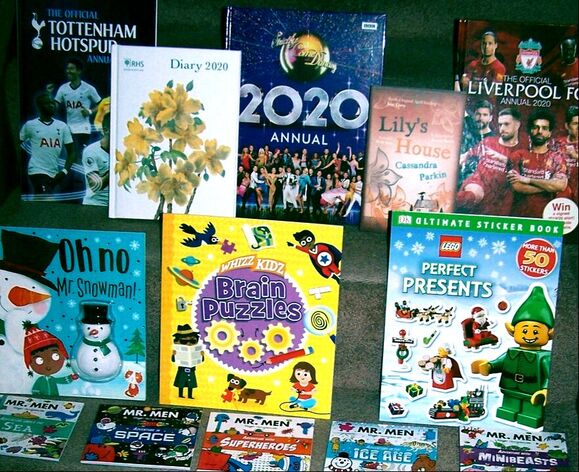 Windsor and Eton Rotary Club, Community and Vocational Committee are pleased to support DASH for the second successive year. As a charity, DASH works within a framework that acknowledges the gendered nature of domestic abuse and addresses root cause issues of violence against women, which are embedded in the historical and cultural unequal status of women in society. Weaved within all their practical work is a commitment to help each victim explore and understand their experiences and the effects upon them and their children, build upon identified skills and strengths with a view to build their resilience, confidence and self esteem. They support all those within our community affected by Domestic Abuse by delivering a range of specialist services that will break the cycle of abuse enabling individuals and families to thrive. As a Rotary Club we have supported them on numerous occasions and were pleased to present them with a selection of books to deliver to people being supported in time for Christmas. The books purchased will cover a variety of children’s age groups and also parents who are equally in need of support. The picture shows just a selection of the books which have been donated. 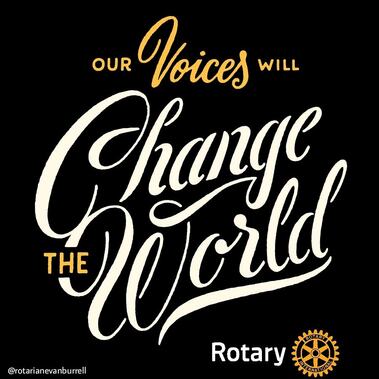 Some years ago, a new acquaintance asked me what should have been a simple question: “What is Rotary?” I opened my mouth to reply and then stopped short with the realisation that I simply did not know where to begin. The problem wasn’t that I didn’t know what Rotary was. The problem was that Rotary was — and is — too large and complex to easily define. We are a member-based organisation, a club-based organisation, and a service based organisation; we are local, regional, and international; we are community members, business people and professionals, working and retired, active in nearly every country in the world. Every one of our 1.2 million members has a unique set of goals, experiences, and priorities; every one of us has a unique understanding of Rotary. To me, Rotary is defined not by who we are, but by what we do — by the potential that Rotary gives us, and the ways we realise that potential in meaningful and lasting service. Rotary has been around for a long time: 112 years. In some ways, we’ve changed tremendously, as we’ve grown, matured, and adapted to the changing needs of our members and communities. In our fundamentals, however, we remain the same: an organisation of people with the desire — and through Rotary, the ability — to make a difference in our communities, and the world. We answer the question “What is Rotary?” with our actions, by making a difference through our service. As an organisation, we recognise how important it is that the world understand what Rotary is, and what we do. At the same time, we know that it is more important than ever to allow our clubs to define Rotary service for themselves. As Rotarians, we have more flexibility than ever to decide how we want our clubs to meet, work, and grow. We’re focused more than ever on making sure that Rotary reflects the people it serves, with more women and a more diverse membership. And we’re working hard to ensure that Rotary remains the world’s pre-eminent volunteer service organisation, by emphasising long-term planning, sustainable service, and continuity in leadership on every level. We will answer the question “What is Rotary?” with the theme Rotary: Making a Difference. However each of us chooses to serve, we do it because we know our service makes a difference in the lives of others. Whether we are building a new playground or a new school, improving medical care or sanitation, training conflict mediators or midwives, we know that the work we do will change people’s lives — in ways large and small — for the better. Whatever motivation each of us had for joining Rotary, it is the satisfaction we find in Rotary that causes us to remain, the satisfaction of knowing that week by week, year by year, we are part of Rotary: Making a Difference. Ian H.S. Riseley President, Rotary International, 2017-18 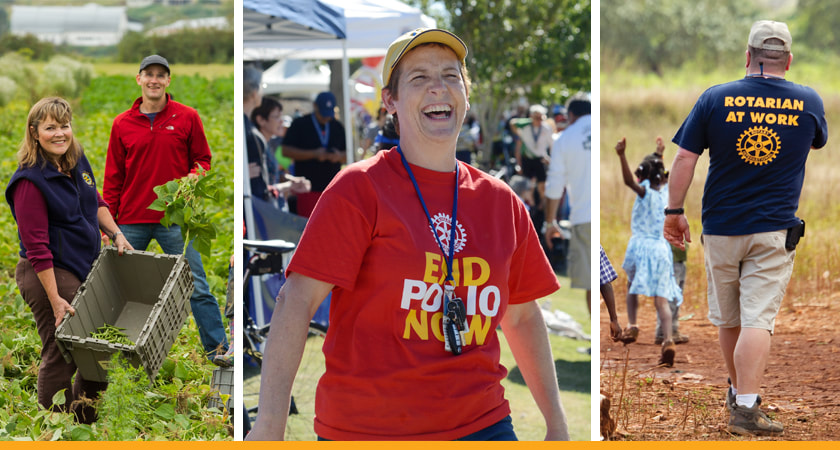 With busy lives, it can be hard to find time to volunteer. However, the benefits of volunteering can be enormous. Volunteering offers vital help to people in need, worthwhile causes, and the community, but the benefits can be even greater for you, the volunteer. The right match can help you to find friends, connect with the community, learn new skills, and even advance your career. Giving to others can also help protect your mental and physical health. It can reduce stress, combat depression, keep you mentally stimulated, and provide a sense of purpose. While it’s true that the more you volunteer, the more benefits you’ll experience, volunteering doesn’t have to involve a long-term commitment or take a huge amount of time out of your busy day. Giving in even simple ways can help those in need and improve your health and happiness; and this is something we offer, and pride ourselves on, at Windsor & Eton Rotary Club. Benefit 1: Volunteering connects you to others: One of the more well-known benefits of volunteering is the impact on the community. Volunteering allows you to connect to your community and make it a better place. Even helping out with the smallest tasks can make a real difference to the lives of people, animals, and organisations in need. And volunteering is a two-way street: It can benefit you and your family as much as the cause you choose to help. Dedicating your time as a volunteer helps you make new friends, expand your network, and boost your social skills. One of the best ways to make new friends and strengthen existing relationships is to commit to a shared activity together. Volunteering is a great way to meet new people, especially if you are new to an area. Benefit 2: Volunteering is good for your mind and body: Volunteering provides many benefits to both mental and physical health, such as:
Benefit 3: Volunteering can advance your career: If you’re considering a new career, volunteering can help you get experience in your area of interest and meet people in the field. Even if you’re not planning on changing careers, volunteering gives you the opportunity to practice important skills used in the workplace, such as teamwork, communication, problem solving, project planning, task management, and organization. You might feel more comfortable stretching your wings at work once you’ve honed these skills in a volunteer position first. Benefit 4: Volunteering brings fun and fulfilment to your life: Volunteering is a fun and easy way to explore your interests and passions. Doing volunteer work you find meaningful and interesting can be a relaxing, energising escape from your day-to-day routine of work, school, or family commitments. Volunteering also provides you with renewed creativity, motivation, and vision that can carry over into your personal and professional life. Join Windsor & Eton Rotary Club and start your volunteering today...  During 2019-20, Rotary will host a series of presidential conferences around the world, focusing on Rotary’s relationship with the United Nations and the UN’s sustainable development goals that many Rotary service projects support. In 2020, the United Nations will celebrate the 75th anniversary of its charter and its mission of promoting peace. Rotary was one of 42 organisations the United States invited to serve as consultants to its delegation at the 1945 San Francisco conference, which led to the UN’s charter. For decades, Rotary has worked alongside the United Nations to address humanitarian issues around the world. Today, Rotary holds the highest consultative status that the UN offers to nongovernmental organisations. “Rotary shares the United Nations’ enduring commitment to a healthier, more peaceful, and more sustainable world,” Rotary International President Maloney said. “And Rotary offers something no other organisation can match: an existing infrastructure that allows people from all over the world to connect in a spirit of service and peace and take meaningful action toward that goal.” Rotary at the start of the United Nations Rotary and the United Nations have a shared history of working toward peace and addressing humanitarian issues around the world. During World War II, Rotary informed and educated members about the formation of the United Nations and the importance of planning for peace. Materials such as the booklet “From Here On!” and articles in The Rotarian helped members understand the UN before it was formally established and follow its work after its charter. Many countries were fighting the war when the term “United Nations” was first used officially in the 1942 “Declaration by United Nations.” The 26 nations that signed it pledged to uphold the ideals expressed by the United States and the United Kingdom the previous year of the common principles “on which they based their hopes for a better future for the world.” Officials from Great Britain, the Soviet Union, and the United States met in Moscow in 1943 and called for the creation of an international organisation to maintain peace and security. The next year, representatives of those countries plus China held conferences in Washington, D.C., to discuss how to go about this monumental task. Those sessions became known as the Dumbarton Oaks conference, where delegations from the four countries developed a proposal for the structure of the new organisation. After the conference, Rotary published “What Can Rotarians Do Following Dumbarton Oaks?” It included the proposed charter, talking points, and suggestions for discussing with club members how the United Nations would relate to Rotary’s goal of advancing international understanding. It also emphasized the importance of having a plan ready for when the war ended, rather than waiting until the fighting stopped. After World War I, “proposals for international cooperation failed because of lack of enlightened public opinion to support them,” it explained. Discussions among members “will help to create an informed public opinion.” “Timely Questions on Dumbarton Oaks” followed to help Rotarians understand the complexities of the proposed charter. The flyer presented different perspectives on the security council and other aspects of the UN as topics for Rotary club programs or discussions. At the same time, governments around the world were carefully studying and reacting to the work done at Dumbarton Oaks. From April to June 1945, delegations from 50 nations attended the United Nations Conference on International Organisation in San Francisco (often known as the San Francisco conference). Their task was to write a charter acceptable to all of them. The delegations were assisted in this historic effort by a large number of staff, advisers, and consultants. Rotary International was one of 42 organisations the United States invited to serve as consultants to its delegation at the San Francisco conference. Each organisation had seats for three representatives, so Rotary International’s 11 representatives served in rotation. The people officially representing Rotary included the general secretary, the editor of The Rotarian, and several past presidents. Other Rotarians from Africa, Asia, Europe, and North and South America served as members of their own nations’ delegations. Rotarians also served as consultants to their national delegations. Just before the meetings began, Rotary International published and distributed the “Pattern for the San Francisco Conference” pamphlet. “It is a splendid opportunity for the individual Rotarian to fulfil the objective of International Service,” the document proclaimed, “by taking part in the debate on this scheme of world government.” Throughout the rest of 1945, The Rotarian and other publications kept Rotary members informed about issues and developments related to the new organisation. Editorials and articles clarified issues, provided additional insights and talking points, and updated readers on what was happening and the people involved:
After the UN was established, the 95-page booklet “From Here On!” contained the exact text of the UN Charter on one side of every two-page spread with annotations and questions designed to stimulate discussion on the other. With this layout, Rotarians could use it to learn and lead club discussions. The Charter, it explained, would be effective only if “free citizens” worldwide were determined to give it vitality. “The Rotarian faithfully following these pages,” the booklet said, “will find himself treading the path to service.” In 1946, Rotary published a supplement listing the major accomplishments of the meetings held by the UN General Assembly in January and February of that year. Later articles in The Rotarian kept the United Nations and its work on the minds of members:
Today, Rotary holds the highest consultative status offered to a nongovernmental organisation by the UN’s Economic and Social Council, which oversees many specialised UN agencies. The Rotary Representative Network maintains and furthers its relationship with several UN bodies, programs, commissions, and agencies. This network consists of Rotary International representatives to the United Nations and other organisations. 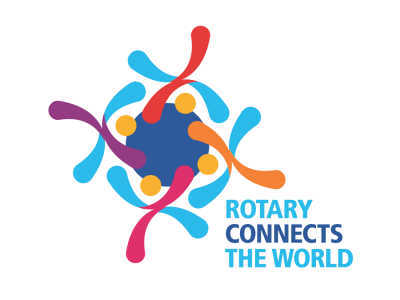 Rotary International President Mark Daniel Maloney explained his vision for building a stronger Rotary, calling on leaders to expand connections to their communities and to embrace innovative membership models. RI President-elect Mark Daniel Maloney announces the 2019-20 presidential theme, Rotary Connects the World, to incoming district governors in San Diego, California, USA. See video of his speech. “The first emphasis is to grow Rotary — to grow our service, to grow the impact of our projects, but most importantly, to grow our membership so that we can achieve more,” Maloney said. Maloney believes that connection is at the heart of the Rotary experience. “(Rotary) allows us to connect with each other, in deep and meaningful ways, across our differences,” Maloney said. “It connects us to people we would never otherwise have met, who are more like us than we ever could have known. It connects us to our communities, to professional opportunities, and to the people who need our help.” Maloney also called on every Rotary and Rotaract club to identify segments of their community not represented in their club by creating a membership committee with diverse members. “Through Rotary, we connect to the incredible diversity of humanity on a truly unique footing, forging deep and lasting ties in pursuit of a common goal,” he added. “In this ever more divided world, Rotary connects us all.” Maloney urged leaders to offer alternative meeting experiences and service opportunities to make it easier for busy professionals and people with many family obligations to serve in leadership roles. “We need to foster a culture where Rotary does not compete with the family, but rather complements it,” Maloney said. “That means taking real, practical steps to change the existing culture: being realistic in our expectations, considerate in our scheduling, and welcoming of children at Rotary events on every level.” Maloney said many of the barriers that prevent people from serving as leaders in Rotary are based on expectations that are no longer relevant. “It is time to adapt, to change our culture, and to convey the message that you can be a great district governor without visiting every club individually, and a great president without doing everything yourself.” |
AuthorWrite something about yourself. No need to be fancy, just an overview. Archives
August 2020
Categories
All
|
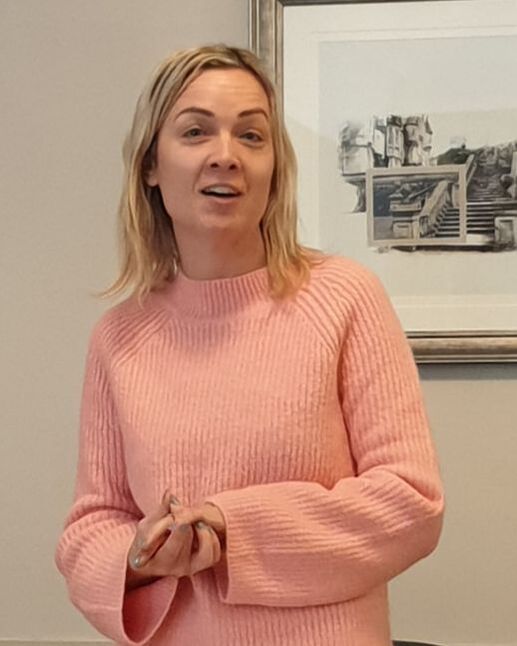
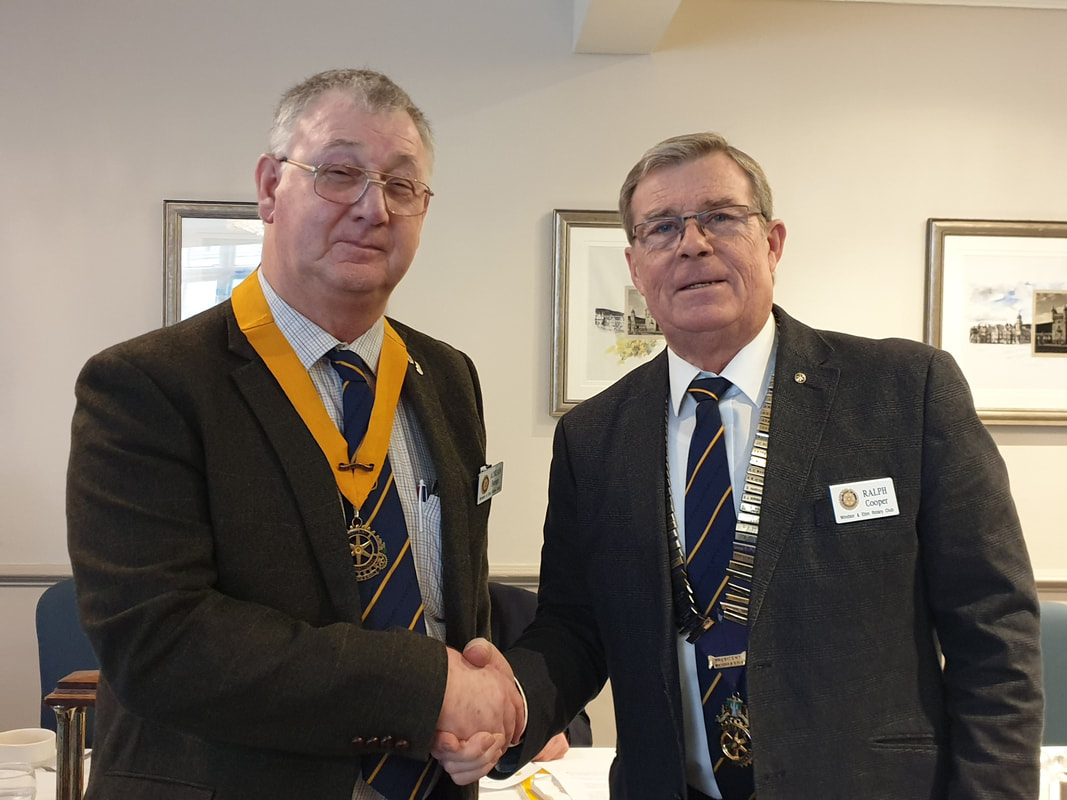
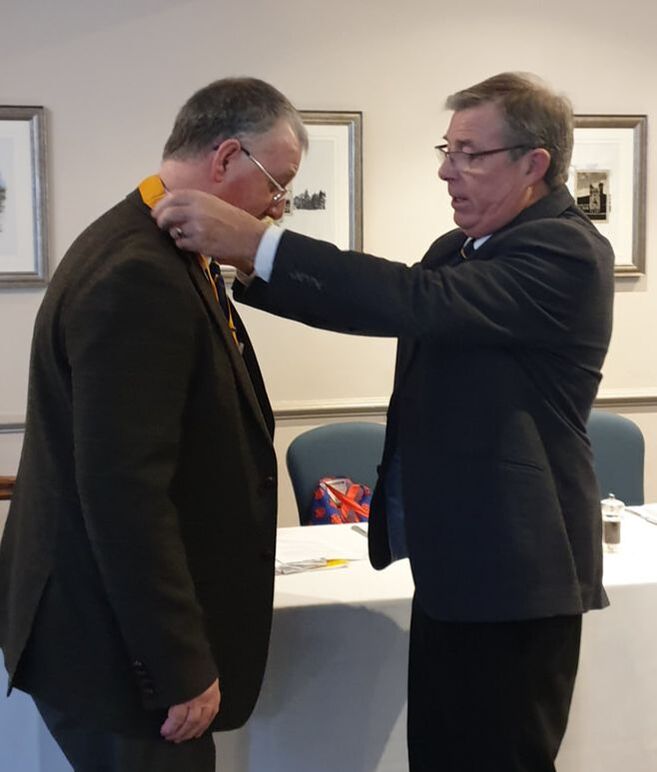
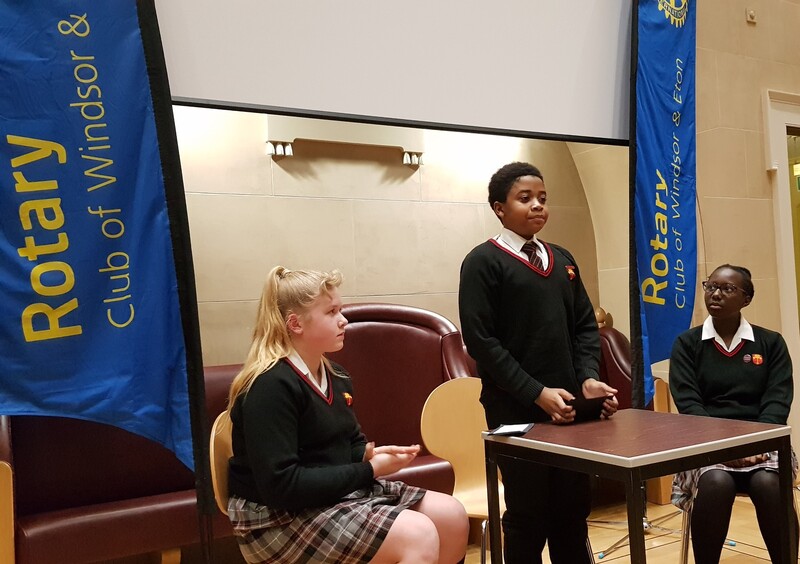
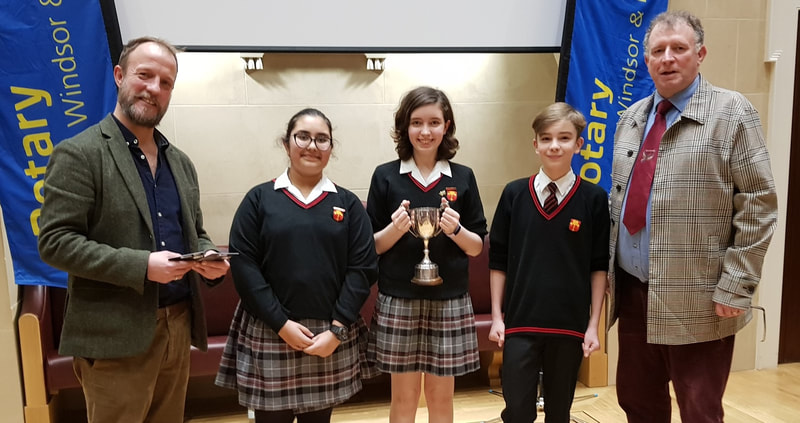
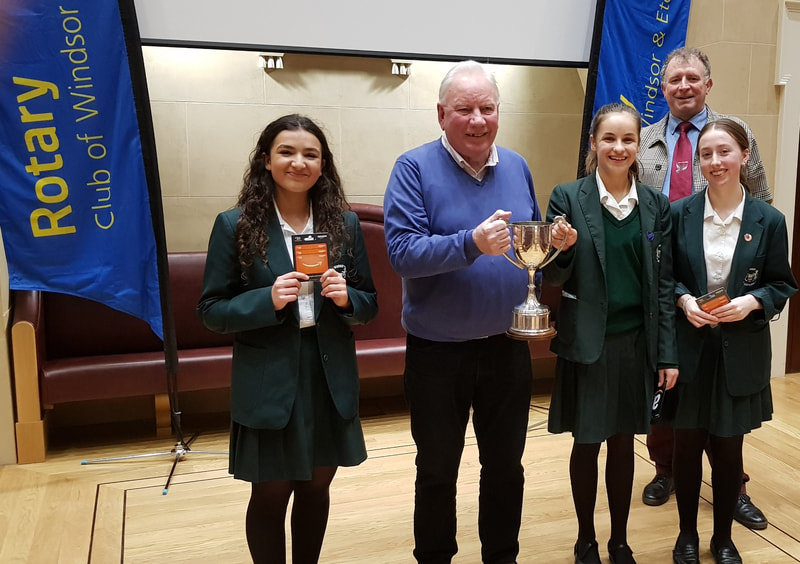
 RSS Feed
RSS Feed
